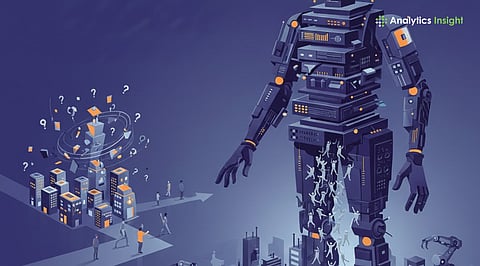

Tech giants like Microsoft, Google, and Amazon are cutting jobs amid an AI-driven shift.
Middle management and support roles are most at risk as automation rises.
The future of work will demand adaptability, reskilling, and AI fluency.
AI has changed the fundamentals of employment and hiring completely. From Microsoft and Google to Meta and Amazon, Big Tech has spent 2025 pruning thousands of jobs across functions.
More than 60,000 layoffs have already been reported this year, signalling not just another round of corporate belt-tightening but a deeper transformation in how technology companies, and, by extension, much of the global economy, will work in the years ahead.
After the pandemic boom-when remote work and cloud services spurred an unprecedented hiring spree. Demand normalized, growth flattened, and inflated payrolls suddenly looked unsustainable. But this year’s layoffs are about more than cost control. They mark a pivot to efficiency, automation, and artificial intelligence.
Large language models and generative AI tools have quietly redrawn the productivity curve. What used to require teams of analysts or developers can now be executed by smaller, AI-assisted groups.
In one estimate, an upcoming Stanford–MIT study says AI could significantly accelerate roughly 15 per cent of US job tasks. That’s the subtext of this layoff cycle: the workforce is being recalibrated for an AI-augmented economy.
It has particularly hit middle management and generalist jobs. Organisations are flattening hierarchies, automating coordination, documentation, and te, sting work. Software teams that once had layers of managers and support staff are leaner today, guided by AI copilots and productivity dashboards.
Meanwhile, entry-level positions in IT services act as a safety net for millions of students graduating in countries such as India-are also under stress. The recent layoffs at Tata Consultancy Services gave the clearest indicator of that shift: automation is no longer an experiment but a structural reality in outsourcing.
Also Read: Amazon Layoffs Hit NYC, 700 Jobs Cut Amid Global Restructuring
The emerging model is clear: fewer employees, more automation, and a premium on specialized, adaptable skills. Firms are redeploying staff to high-growth areas like AI safety, cloud infrastructure, and data governance, while trimming back-office and repetitive work.
It is substituting flexible hiring, including contract-based and remote global talent, for the sprawling in-house teams of the 2010s.
This ‘lean tech’ philosophy ripples out from Silicon Valley. Efficiency drives organizational design in an era of economic uncertainty. The archetype of the lifelong corporate career is fading; it is being replaced by shorter stints, cross-functional movement, and continuous reskilling.
Also Read: IBM Joins Global Tech Layoff Wave, Eyes Software-Led Future
For workers, survival now depends on adaptability. Skills in AI integration, data literacy, product thinking, and human-centred design are fast becoming the new career currency. Employability will be defined by the things machines can’t do: creativity, ethics, and contextual judgment. For governments and educators, the challenge is steeper: updating curricula, funding reskilling programmes, and cushioning transitions for displaced professionals.
The tech giant's layoff wave may seem grim, but it’s also a prelude to reinvention. The future of work will be defined not by fewer jobs alone but by different ones: higher-value, AI-enhanced, and globally distributed. In short, big tech companies are telling the world an uncomfortable truth: the next productivity revolution won’t just automate what we do; it will redefine who gets to do it.
